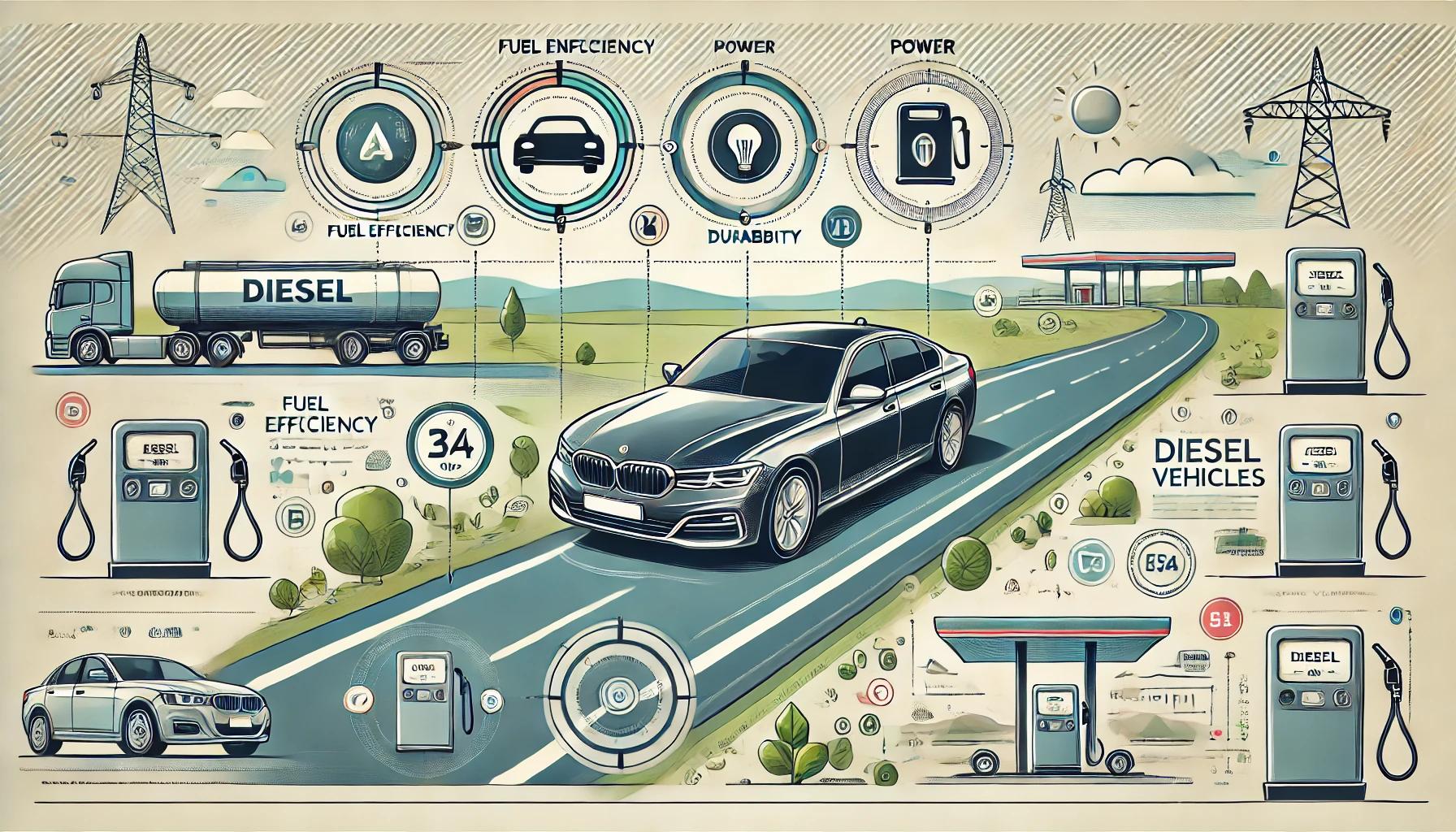Diesel Vehicle Advantages

1. High Fuel Efficiency
Diesel engines are more efficient than gasoline engines. The primary reason for this is that diesel fuel has a higher energy density. Diesel engines can travel greater distances with less fuel compared to gasoline engines. This makes diesel vehicles an excellent choice for long trips or for those who plan to drive significant distances.
2. Longer Range
Thanks to their fuel efficiency, diesel vehicles offer a longer range. Diesel engines produce more energy, enabling them to cover greater distances with less fuel. Ideal for long journeys, diesel vehicles consume less fuel and therefore require fewer refueling stops compared to gasoline vehicles.
3. High Torque and Power
Diesel engines are renowned for their ability to produce high torque. Torque impacts a vehicle’s acceleration and load-carrying capacity. Diesel vehicles are particularly suited for heavy-duty applications, such as trucks or trailers. High torque ensures that diesel vehicles are more powerful and durable, making them more efficient under heavy loads and challenging conditions.
4. Lower Carbon Emissions (Compared to Gasoline Vehicles)
Diesel engines emit less carbon dioxide than gasoline engines. This is due to diesel fuel’s higher energy efficiency and the engine’s better overall performance. This feature makes diesel vehicles more appealing to environmentally-conscious drivers. However, it is important to note that diesel vehicles still emit carbon dioxide, albeit at lower levels than their gasoline counterparts.
5. Longer Engine Life and Durability
Diesel engines typically have a longer lifespan. They are robust and durable because they generally run cooler and are designed for extended use. This characteristic makes diesel vehicles especially attractive for commercial use and long-term ownership.
6. Lower Operating Costs (In the Long Run)
While diesel vehicles may have a higher initial cost, they offer lower operating costs in the long term due to their fuel efficiency and durability. High fuel efficiency and extended engine life result in less fuel consumption and reduced maintenance needs, lowering the total cost of ownership.
7. Suitability for Commercial Use
Diesel vehicles are especially popular for commercial applications. Trucks, buses, vans, and other commercial vehicles often run on diesel engines. These vehicles are ideal for meeting the high torque and power demands of commercial transport and logistics. The power provided by diesel engines offers a significant advantage in the commercial sector.
Conclusion
Diesel vehicles come with numerous advantages such as fuel efficiency, long range, high torque, and durability. They are an ideal choice for drivers embarking on long journeys or for heavy-duty commercial use. While diesel vehicles are less harmful to the environment than gasoline vehicles, more environmentally-friendly alternatives, such as electric vehicles, are continually being developed. For now, diesel vehicles remain a reliable, economical, and powerful transportation solution for many people.










